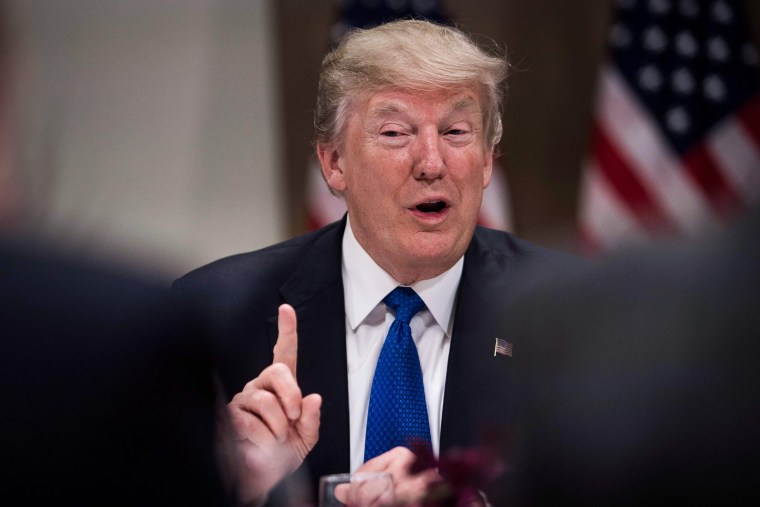At a conference last May, Commerce Secretary Wilbur Ross described the administration's vision for using Earth's moon as "a type of gas station" for ships en route to other destinations, including Mars. When Ross was asked whether a gas station on the moon would happen in the next decade, the cabinet secretary said it's coming "a lot sooner than that."
It wasn't altogether clear what he was talking about. In fact, Ross' comments came on the heels of NASA cancelling its only lunar rover in development.
The most likely explanation is that the Commerce secretary was echoing his boss' thoughts on the subject.
A few months earlier, Donald Trump boasted to an audience that the United States would reach Mars "very soon." Apropos of nothing, the president added, "You wouldn't have been going to Mars if my opponent won, that I can tell you. You wouldn't even be thinking about it." (Hillary Clinton has long described herself as "an enthusiastic supporter of human space flight," and during her candidacy, she committed her administration to investing in the endeavor, including a Mars mission.)
Trump's interest in the subject was apparently quite intense. In April 2017, he participated in a video call with astronaut Peggy Whitson, who'd just broken the record for the longest amount of time in space for any American. The two had this exchange:
TRUMP: Tell me, Mars — what do you see a timing for actually sending humans to Mars? Is there a schedule? And when would you see that happening?WHITSON: Well, I think as your bill directed, it will be approximately in the 2030s. As I mentioned, we actually are building hardware to test the new heavy launch vehicle, and this vehicle will take us further than we've ever been away from this planet. Unfortunately, spaceflight takes a lot of time and money, so getting there will require some international cooperation to get it to be a planet-wide approach in order to make it successful, just because it is a very expensive endeavor. But it so worthwhile doing.TRUMP: Well, we want to try and do it during my first term or, at worst, during my second term. So we'll have to speed that up a little bit, okay?WHITSON: (Laughter.) We'll do our best.
It now appears he may not have been kidding.
Olivia Nuzzi yesterday highlighted an anecdote from Team of Vipers, the new upcoming book from Cliff Sims, a former Trump aide from the White House and 2016 campaign.
As the clock ticked down [before the difficult call to space], Trump "suddenly turned toward the NASA administrator." He asked: "What's our plan for Mars?"[Robert Lightfoot Jr., the acting NASA administrator] explained to the president — who, again, had recently signed a bill containing a plan for Mars — that NASA planned to send a rover to Mars in 2020 and, by the 2030s, would attempt a manned spaceflight."Trump bristled," according to Sims. He asked, "But is there any way we could do it by the end of my first term?"Sims described the uncomfortable exchange that followed the question, with Lightfoot shifting and placing his hand on his chin, hesitating politely and attempting to let Trump down easily, emphasizing the logistical challenges involving "distance, fuel capacity, etc. Also the fact that we hadn't landed an American anywhere remotely close to Mars ever."
As the story goes, Trump asked if NASA could put Americans on Mars if he sent the agency's budget "through the roof." Told that it wouldn't matter, the president was "visibly disappointed."
I haven't seen any independent reporting on the anecdote, but it's amazing how easy this is to believe.
